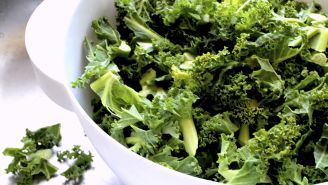Updated on February 13, 2024.
Inflammation contributes to many health problems, including chronic pain, rheumatoid arthritis, psoriasis, inflammatory bowel disease, diabetes, heart disease, asthma, obesity, and even certain cancers.
There a number of causes of inflammation and ways to help reduce it. One way to help manage inflammation without the use of medications is by adding certain foods—and eliminating others—from your diet. Here’s how to get started.
Understanding inflammation
Inflammation is your body's natural response to infection, injury, or a toxin. As the immune system launches a bout of acute (short-term) inflammation to try to remove or neutralize the threat to the body, the result is often redness, warmth, swelling, and pain. (Think of the experience of healing from a sprained ankle or recovering from a case of the flu.) This response is generally temporary until healing occurs and the body eliminates the threat.
But sometimes, the immune system gets in a state of overall chronic inflammation. This may be a result of harmful influences such as cigarette smoke, chronic stress, excess belly fat, or inadequate sleep. This consistent low-level inflammation in the body is known as “metaflammation.”
The problem with metaflammation is that it gradually attacks healthy cells, resulting in damage to your body. If your body is experiencing metaflammation, you may experience vague or general symptoms like joint pain, fatigue, fever, or skin rash. Often, you may have no symptoms at all. The process, if it lasts, can contribute to the development of a variety of diseases, including heart disease, type 2 diabetes, Alzheimer’s disease, and certain types of cancer.
A different form of general inflammation sometimes stems from disorders of the immune system. For example, some people may have changes to their genes that prompt the immune system to attack cells that otherwise pose no threat to the body. This process, when it persists, my lead to certain conditions called autoimmune disorders. These may include type 1 diabetes, rheumatoid arthritis, multiple sclerosis, lupus, fibromyalgia, and inflammatory bowel conditions such as Crohn’s disease.
Diet to the rescue
In the case of both metaflammation and inflammatory autoimmune conditions, medicines may help calm symptoms. But what you really want is to prevent inflammation from taking hold in the first place. That may mean considering a few lifestyle changes, including to your diet.
Eating certain foods with special properties may help tamp down metaflammation and, in turn, lower the risk of chronic diseases related to inflammation. Some research also suggests that the foods you eat may also help lower the inflammation that occurs in certain autoimmune diseases. The good news is that there are a variety of healthy and delicious foods that have been identified as being able to lower inflammation
Foods that help reduce (and promote) inflammation
Some foods contain chemicals that can help hold back inflammation. Other foods, meanwhile, may promote it.
Anti-inflammatory foods are foods that help tamp down inflammation. These include:
- Fruits (particularly brightly colored ones like berries and citrus)
- Vegetables (particularly leafy green vegetables like spinach and kale and brightly colored vegetables like squash)
- Whole grains
- Beans and legumes
- Coffee and tea
- Monounsaturated fats (such as those found in olive oil, nuts and needs, and avocados)
- Polyunsaturated fats, particularly omega-3 fatty acids (found in fish like salmon, mackerel, and sardines, plus walnuts and flaxseeds)
- Dark chocolate (with cacao content of 70 percent or greater)
- Herbs and spices (like ginger and turmeric)
Foods that promote inflammation tend to be high in sugar and unhealthy fats, such as:
- Sugary drinks (like soda, juice drinks, and sweetened tea)
- Packaged foods high in added sugars (like candies, cookies, and pastries)
- Refined carbohydrates (found in foods like white rice, white bread, and pasta)
- Fried foods (like French fries and potato chips)
- Fatty and processed meats (like bacon, sausage, hot dogs, and fatty steaks)
- Excessive amounts of alcohol
There are several anti-inflammatory eating styles that emphasize anti-inflammatory foods while reducing intake of inflammatory foods. Some of the most common and popular of these include the Mediterranean diet, the DASH diet, and the MIND diet.
Looking past the plate
Eating well is only one part of the picture to maintain a handle on inflammation. Getting timely care from a healthcare provider (HCP) is crucial. Follow their guidance, especially if you've been diagnosed with a chronic disease. And make sure you talk to your HCP about your eating plan before you change things up.
No matter how carefully you select your menu, food alone probably won’t tame chronic inflammation if other pieces of the anti-inflammatory puzzle are missing. That means it’s also important to try to get enough sleep on a daily basis, manage stress levels, watch your weight, exercise regularly, and avoid harmful habits like smoking and excessive drinking.
As you put together your eating plan, remember that the best diet is one that you will actually enjoy and follow. If you have a disease that affects your digestion, you may need to avoid spices, high-fiber foods, raw vegetables, or certain types of grains. Most recipes aren’t set in stone, so feel free to adapt them to your needs and tastes.







